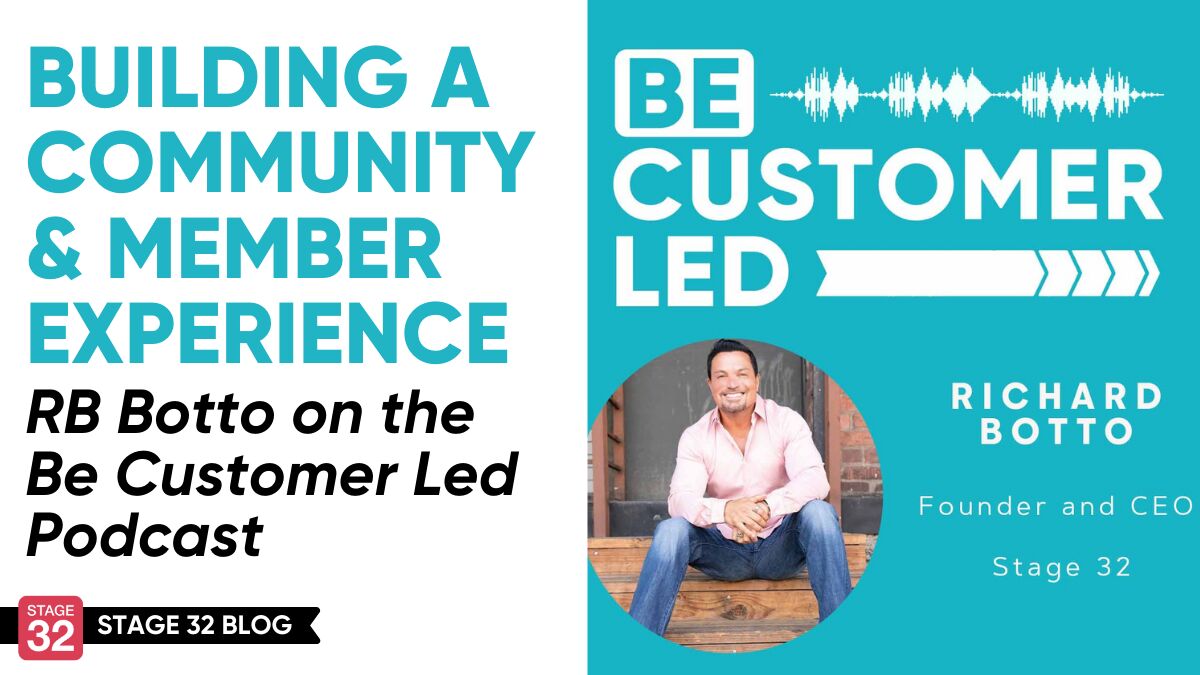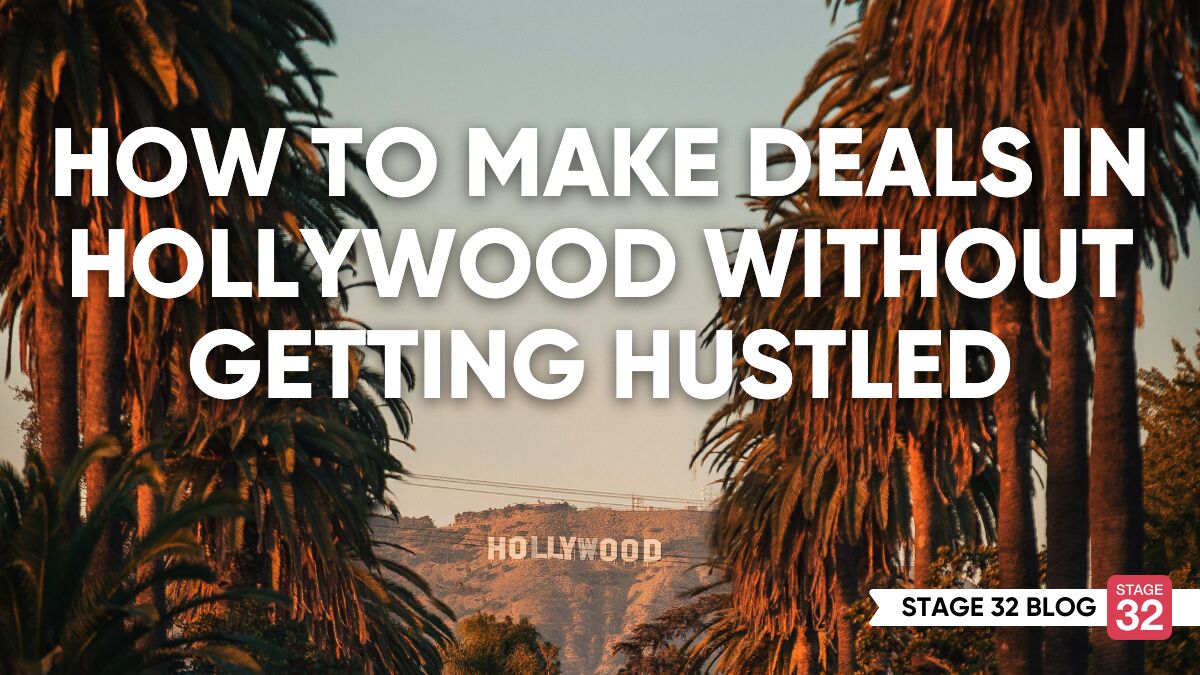How To Make Deals in Hollywood without Getting Hustled
Hello, readers of Stage 32! My name is Tennyson E. Stead, I’ve been working in entertainment all my life, and I’ve written more than 50 screenplays - many of them as a ghostwriter, which means a vastly disproportionate portion of my writing is both paid and uncredited work. In fact, a huge number of my professional decisions have involved compromises that I think a lot of writers would balk at, and certainly I’m constantly making decisions that draw rigorous, interrogative concern from my colleagues and my showfamily.
Funny enough, the decisions that get me into actual trouble are not the ones that keep giving heart palpitations to the people. When I show up on a haphazard, runaway set, and my failure to immediately walk away wins me a traumatic brain injury… nobody questioned whether I should have left that set a little sooner. When I post a project that’s in active development here on Stage 32, like I’ve done with Quantum Theory (check my loglines, if you want to give it a read), everybody’s asking me if I’ve thought about the consequences! You know what’s funny about this?
My methods of managing my boundaries and asking for what I want KEEP WORKING! My life only gets complicated when I violate my ethics or my priorities, and I’ve only ever violated those things in deference to social pressure. After everything I’ve been through, the pressure sensors with which I guard my ethics and priorities have gotten very sensitive. If the needle moves too much, I will terminate that relationship immediately - without conversation or debate. At the same time, I keep making unconventional business agreements in an industry where everyone is theoretically out to screw everyone else!
How do I sleep at night, you may well ask? How does my heart survive the anxiety of all my rash decision-making? Listen. I’m out like a light, five minutes after my head hits the pillow… and I’ll tell you exactly how I do it.

NEGOTIATE THE “TENNY WAY”
What I’m about to offer is basically life coaching. My focused approach to my goals makes it very hard to swindle me, because I’ve always got my eye on what I want and what I need. If that thing is within easy sight, I have no reason to feel anxious. Apart from my duties and responsibilities to the production in question, I’m pretty much unconcerned with all the other stuff happening around me.
If someone doesn’t want to give me something that I think I deserve, that’s not necessarily a problem for me. Is it something I need? Is what’s happening a threat to the people of the production, or the quality of the production? If the answers to all these questions is “no,” then who cares? When you’re negotiating with me, there’s a lot of stuff you can take off the table without any drama. So long as it’s not a threat to the show, the people, or my personal goals, I’m good to go.
Touch that one thing that I told you not to touch, and it shows me that you were never really paying attention to how our relationship works. Immediately, I start severing my attachments and planning my exit strategy.
While circumstances like these aren’t always deliberate, and while it’s just as common to step on someone else’s priorities out of carelessness as malice, I don’t really care why someone is messing with my plans and well-being. Regardless of their intention, continuing to trust that person in the same way is a recipe for failure.

KNOWING WHAT I WANT
If I know what I need to get out of a given production, or from any given asset I have that someone else wants to use (like a screenplay), then so long as I get that very specific thing, I am very happy to accommodate the needs of the production and the other people involved. If there’s a screenplay that I don’t have any specific plans for, then I’m perfectly content to hear proposals that might not seem “fair” to my status as a professional. If optioning a screenplay to some indie producer or director might be beneficial in indirect, more long-term ways, either for myself or just for the industry, then I’ll weigh the risks involved on my own terms. If it’s not going to have an impact on my goals, I tend to see the risk as pretty low.
If someone wants to buy a project that I’m actively invested in, then I need to know whether it’s my screenwriting or whether it’s that specific project they believe in. If it’s the former, I’m always going to pitch them something new and specific to the needs of their situation. I can write three drafts on that script in a month. They don’t need my script as badly as they think they do, and I’m probably going to tell them that in an effort to retain their business.
If the issue is that they want to be a part of this specific project, then maybe they can help… but only if they can provide something I need, on the terms and conditions under which I need it. Otherwise, that’s where I say “thank you very much for your time.”
For all of this to work, my goals need to be very specifically defined. If I have some vague notion of what success as a screenwriter means to me, then I might get seduced by the potential of a project, or a relationship, or what have you. Negotiating isn’t about potential, it’s about hammering out the tangible necessities and obligations of a relationship.
When it comes to selling screenplays, I know what expenses I have in my life and how much cash is worth to me. When it comes to producing my films, I know what things I’m going to need in order to make a return on my investment, and what I need to make the next project easier for everyone involved. If you’re trying to get me to accept something different than what I actually need, then even if you somehow convince me that the things you’re offering are somehow better…
…I still need what I need. Most cheaters and abusers never get past the initial handshake with me. They see me as inflexible, even though I’m constantly cutting deals that my colleagues worry are exploiting my value to the industry. Vague assurances, promises, and hype annoy the crap out of me, and I don’t have much of a poker face. When folks try to “handle” me, they usually wind up deciding I’m more trouble than I’m worth, or that I dislike them, long before I get a chance to find out how deep their nonsense really goes.

CHEATERS AND ABUSERS ARE REAL…
…and they are always at fault, when someone else is getting cheated or abused. What’s more, our industry’s lack of regulation makes it very easy for people like this to thrive. By no means am I saying that when someone gets screwed over, it’s because they didn’t know their own goals thoroughly enough. What I am saying is that cheaters and abusers take advantage of those gaps in our self-awareness. I am also saying that having a sure grip on what our goals are and how they work puts us in a position where we naturally repel cheaters and abusers.
When I start reorganizing my relationship with someone who’s willfully disregarding my needs, I need to be firm. While I very rarely make unsolicited observations about this person’s behavior or attitude, I will establish firm boundaries that ensure we don’t have the same problems in the future. Often, those boundaries include an explicit refusal to read that person’s emails or take their calls.
If our exchange gives this person social ammunition that they can use against me, that’s fine. Anyone who trusts this person is someone whose judgment invites unnecessary risk. If someone has the situational awareness to see the red flags, when this hypothetical person starts bad-mouthing me to their colleagues, then they also have the good sense to follow up with me later and find out what the hell is going on. Either that, or I need to be working with better people.
Integrity, ethics, and priorities, when you maintain them with rigor, will generally repel the people who can do you the most harm in this industry.

BS-PROOF YOUR LIFE
Figure out what your definition of success actually is, and then figure out what it’s going to take to manifest that vision. Be specific. Make lists, and then literally track down the things on those lists. If someone is offering you an IMDb credit in exchange for some work, do you need an IMDb credit? I sure don’t, but maybe you do! Maybe that’s something you’ll be able to use, or maybe it’ll just be super meaningful for you as a benchmark in your career. If that’s what you need to move your goals forward, and if you’re able to do the work without sacrificing your other priorities, then why not?
Just don’t let that other person tell you that an IMDb credit is what you need. Know what you need. Ask for those things. Don’t let people negotiate around things that you know are necessary.
What I’m saying is that abusers and cheaters take advantage of people with unstable boundaries. Having good boundaries is all about knowing why those boundaries exist in the first place. Having good boundaries is about knowing and respecting your needs.
Figure out what those needs are, and you won’t need to worry about trying to squeeze arbitrary rules into your relationships in order to create an artificial sense of security. If someone is having a hard time respecting your needs and boundaries, then maybe they’re a narcissist. Maybe they’re just desperate to get what they need. Who cares? Throw that fish back. If, on the other hand, a person respects and allows for your needs and boundaries…
If that’s the case, what are you worried about?
About Tennyson E. Stead

Supported by a lifetime of stagework, a successful film development and finance career, and a body of screenwriting encompassing more than 50 projects, Tennyson E. Stead is best known for writing the dark future gladiator tentpole Atlas Uprising for Emagine Entertainment, as well as an edgy film industry satire called Making the GAMP for director Michael Wohl. In collaboration with producer Lucinda Bruce, Stead is writing and directing a female-led, sci-fi heist movie called Quantum Theory. When Stead is not writing, directing, and producing feature films, he’s developing the family sci-fi transmedia phenomenon “Jump Rangers,” doctoring screenplays, working in the Los Angeles theater scene, and blogging for Stage 32.
Here’s a list of the articles Stead has written for the Stage 32 community:
REALITY CHECKS FROM AN INSPIRATIONAL CRIPPLE: Part I
REALITY CHECKS FROM AN INSPIRATIONAL CRIPPLE: Part II
HOW WE SCREWED THE SHOWBIZ CULTURE UP - AND HOW WE CAN FIX IT
WHAT IS SPECTACLE IN FILMMAKING - AND HOW CAN INDIE FILMMAKERS USE IT?
WHY I PASSED ON THAT SCREENPLAY
CASHING IN YOUR MILLION DOLLAR IDEA
HOW I SURVIVED THE HOLLYWOOD CRASH
THE GHOSTS OF SHOWBUSINESS PAST
HOW TO GET LEGENDARY PERFORMANCES FROM ACTORS
CRAFTING A FILM COMMUNITY BUILT ON SUPPORT
HOW TO FIND MONEY FOR MOVIES: FUNDRAISING
HOW TO FIND MONEY FOR MOVIES: FINANCING
HOW TO WRITE STRONG, DIVERSE CHARACTERS
LET'S TALK ABOUT AUTEUR THEORY
WHERE ICONIC FILM SCORES COMES FROM
HOW TO HACK THE AUDITION PROCESS
DAVID LYNCH AND THE TALE OF TWO HOLLYWOODS
HOW TO BUILD A UNIVERSE FROM SCRATCH
PAYING RENT WITH THE POWER OF SCREENWRITING
INSPIRATION AND THE WILL TO WORK
CAN SOMEONE TELL ME WHAT PRODUCERS EVEN DO?
3 THINGS I WISH THEY TAUGHT IN FILM SCHOOL
HOW TO CURE WRITERS BLOCK WITH ACTIVE STRUCTURE: PART ONE
HOW TO CURE WRITERS BLOCK WITH ACTIVE STRUCTURE: PART TWO
HOW TO MAKE MONEY IN SCREENWRITING WITHOUT REPRESENTATION
HOW TO ADAPT STORIES FROM THE PAGE TO THE SCREEN
HOW TO HANDLE ADVICE AND CRITIQUE
HOW TO NETWORK WITHOUT USING PEOPLE
Let's hear your thoughts in the comments below!
Got an idea for a post? Or have you collaborated with Stage 32 members to create a project? We'd love to hear about it. Email Taylor at taylor@stage32.com and let's get your post published!
Please help support your fellow Stage 32ers by sharing this on social. Check out the social media buttons at the top to share on Instagram @stage32 Twitter @stage32 Facebook @stage32 and LinkedIn @stage-32
Take Stage 32 with you! Download the Stage 32 app for iOS here. Android User? Click here for the Stage 32 Android App!
| Building a Community & Member Experience: RB Botto on the Be Customer Led Podcast |
| Short and Sweet: 4 Tips for Writing Tighter Scripts |
Search Stage 32 Blog
There are now 4043 blog posts for you to enjoy. Search them all by tags below.
Acting, Advice, Cinematography, Coffee & Content, Composing, Contests, Distribution, Featured, Filmmaking, Financing, Inspirational, Networking, Producing, Screenwriting, Success Stories, Tips, Trending,Relevant Tags
Recommended Articles
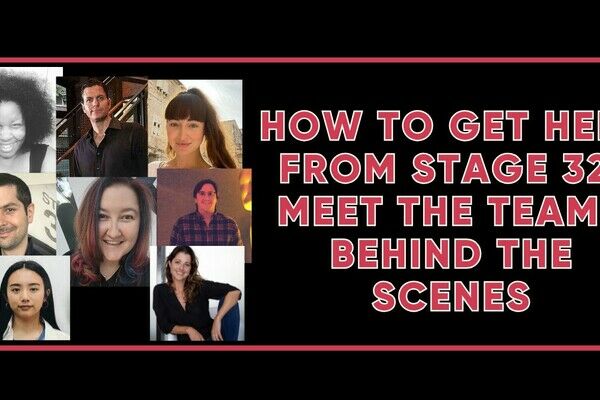
How to Get Help from Stage 32: Meet the Teams Behind the Scenes

What Stage 32's Community Is Really About (Beyond Scripts, Sets, and Showreels)

Find Your Footing on Stage 32: Join Our December Community Open House

Stage 32 Now Certifying the Dallas Film Commission!

Insider Intel: Packaging your Project- The Chicken or the Egg Dilemma

Stage 32 Featured at the 43rd Torino Film Festival!
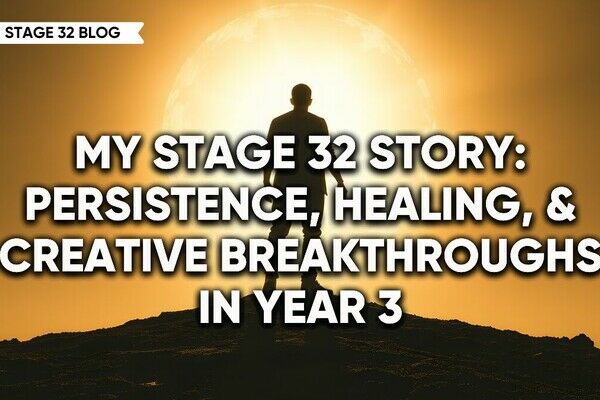
My Stage 32 Story: Persistence, Healing, & Creative Breakthroughs in Year 3
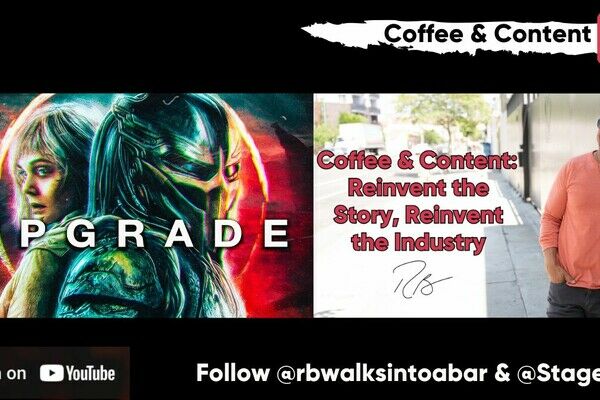
Coffee & Content: Reinvent the Story, Reinvent the Industry
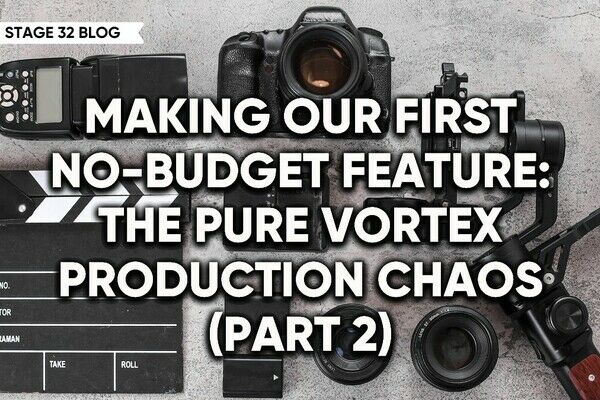
Making Our First No-Budget Feature: The Pure Vortex Production Chaos (Part 2)



